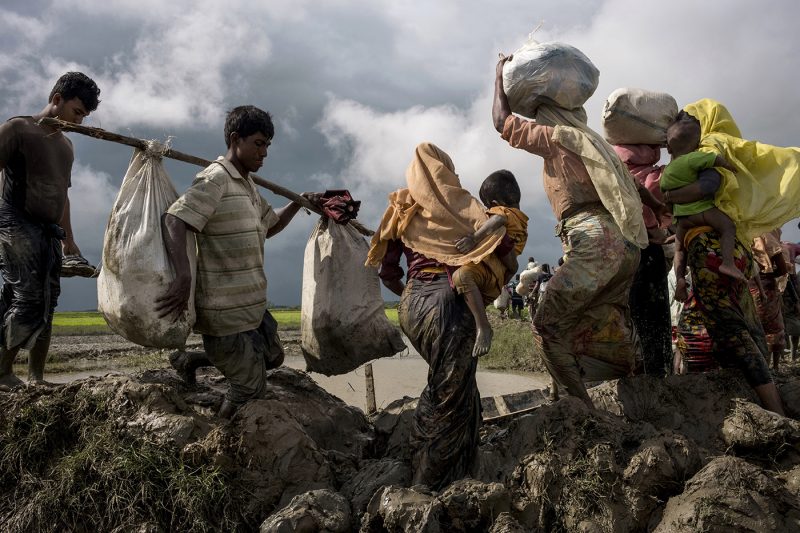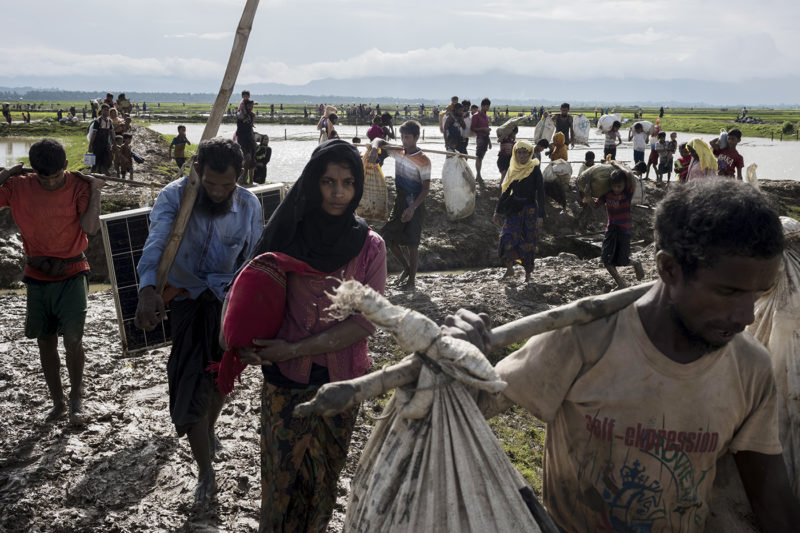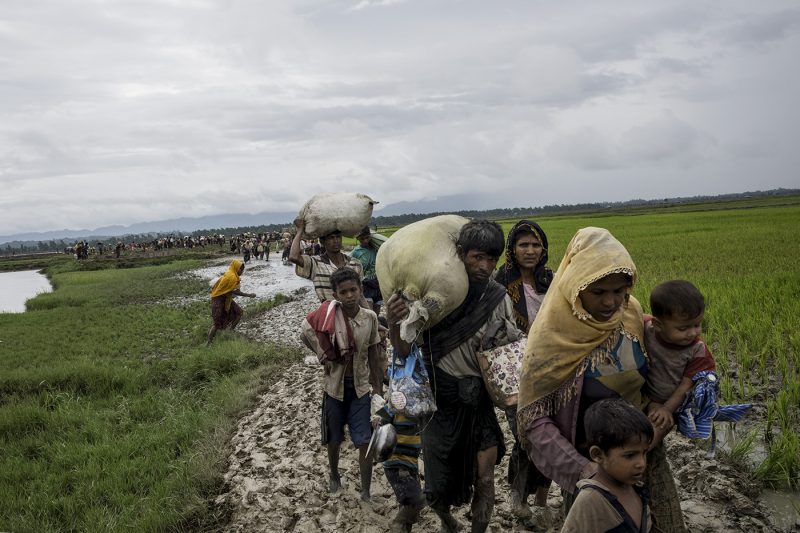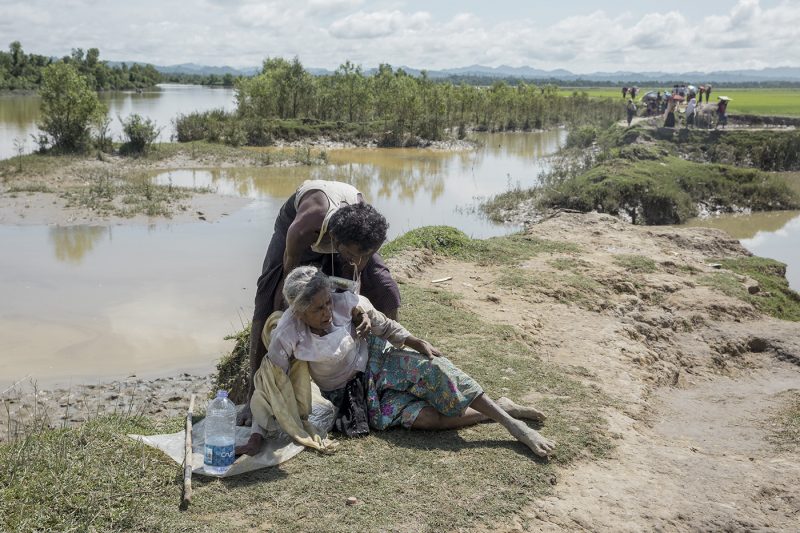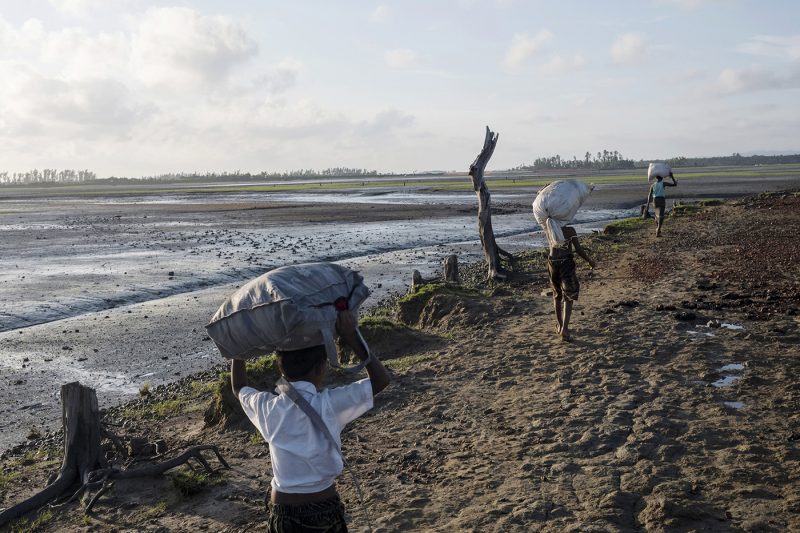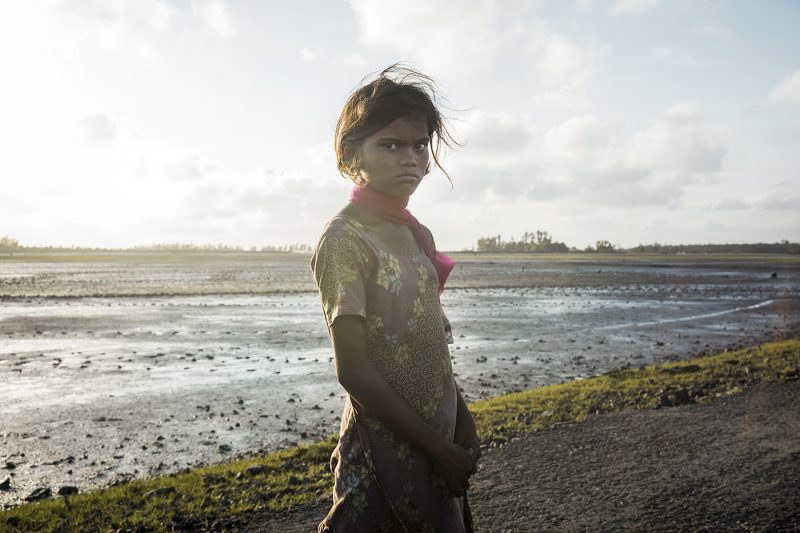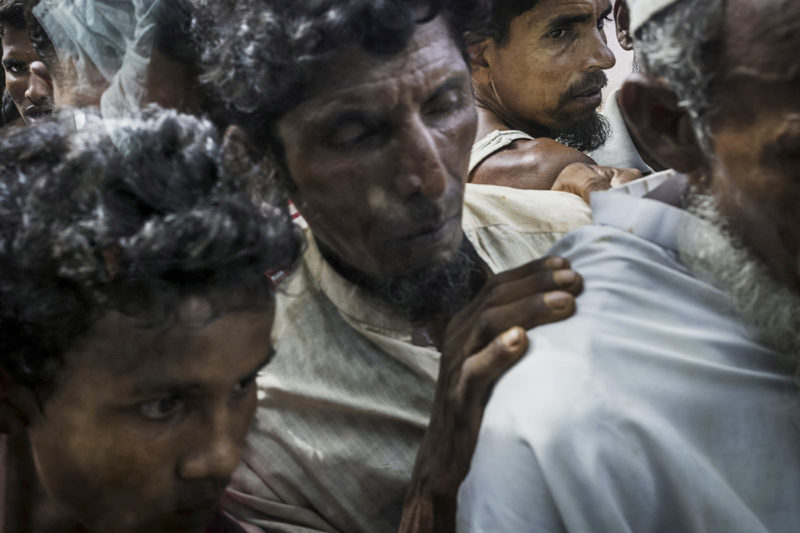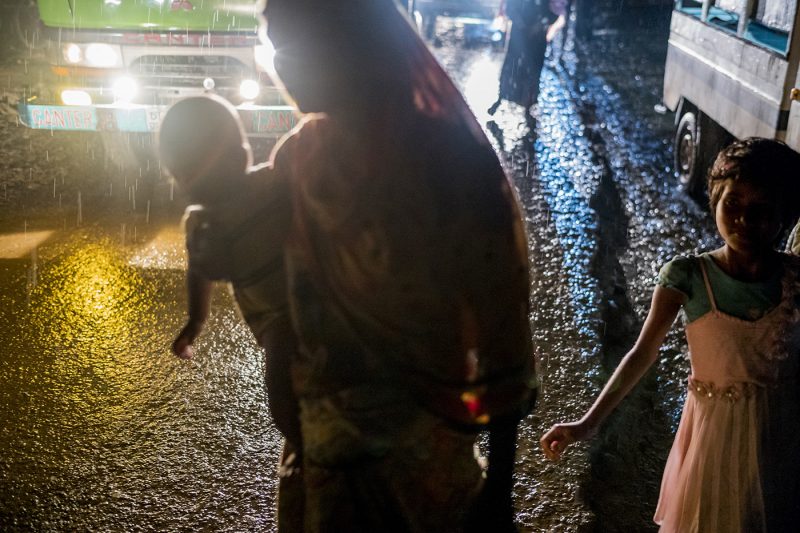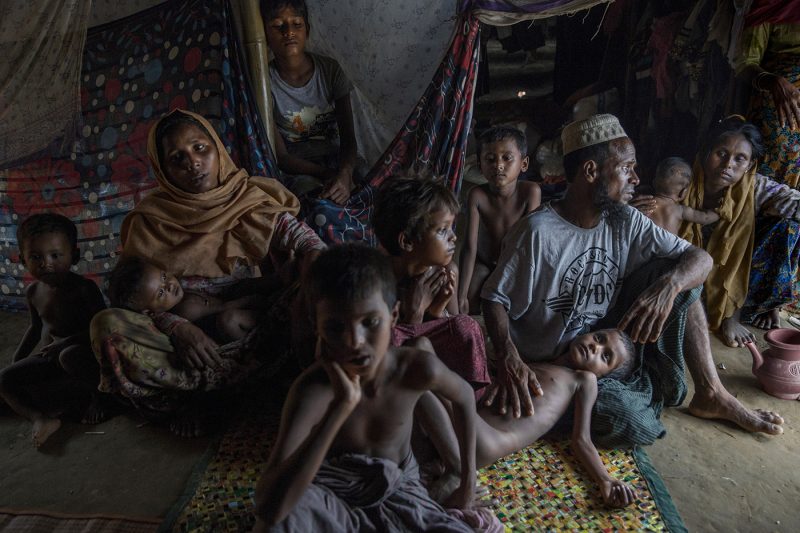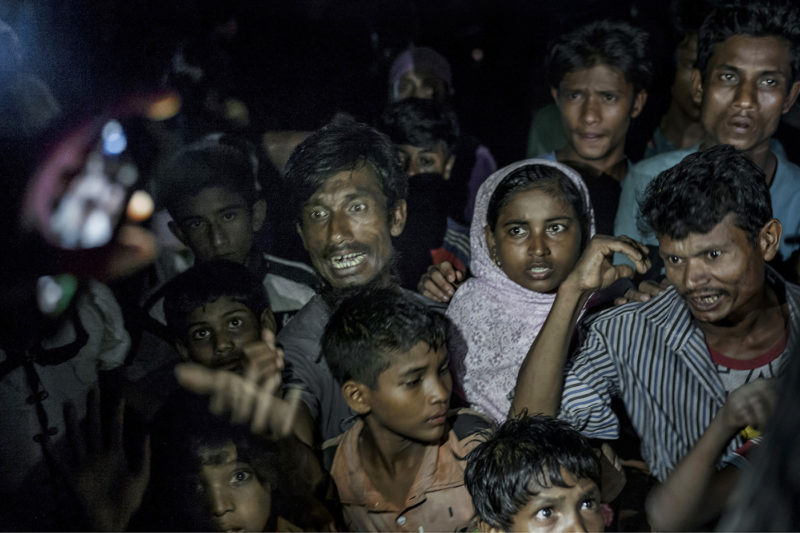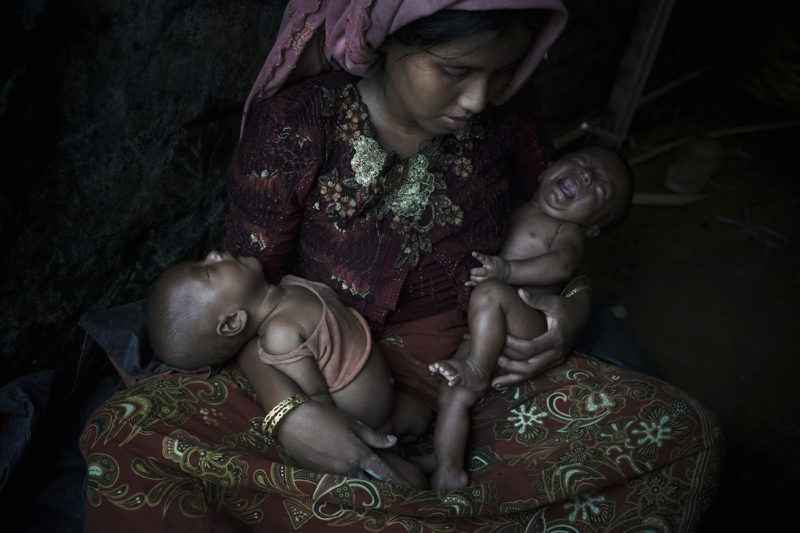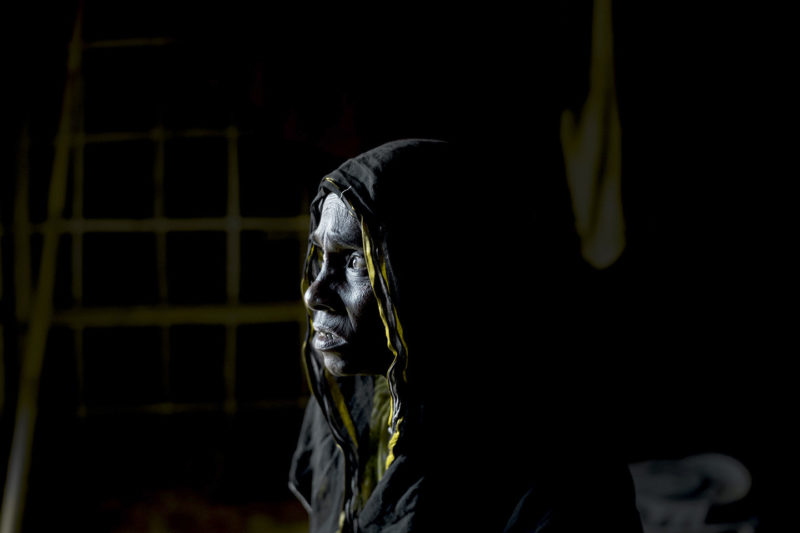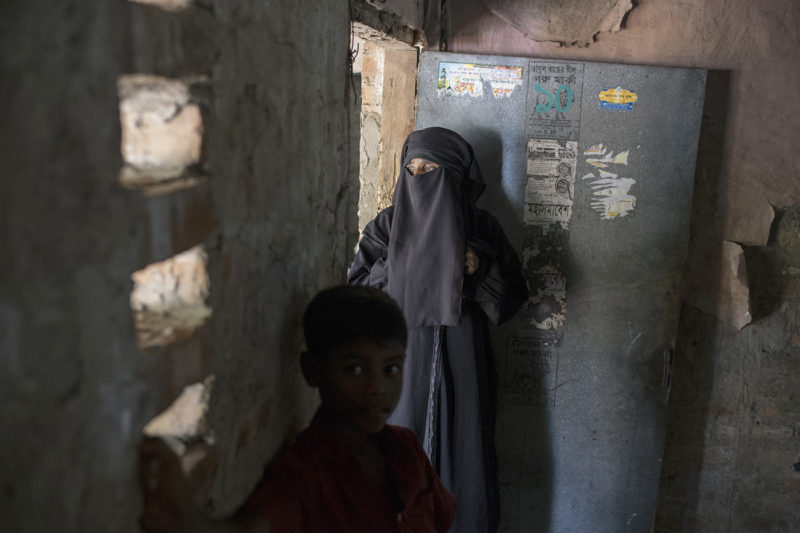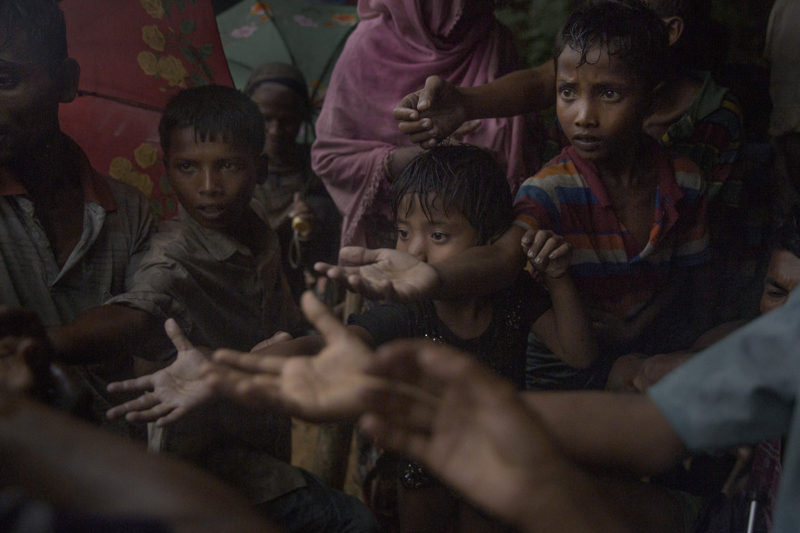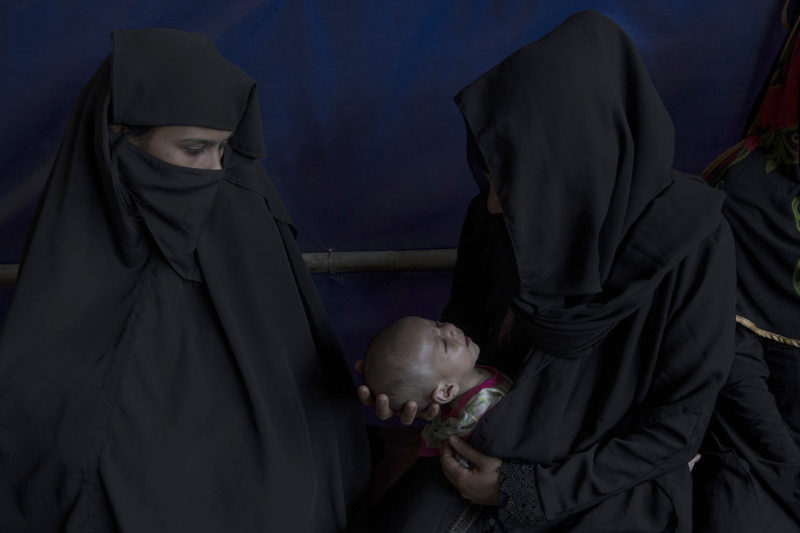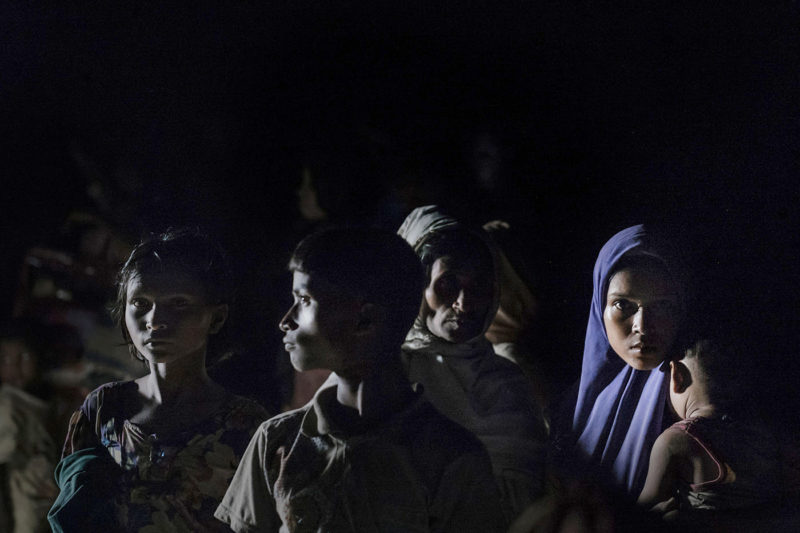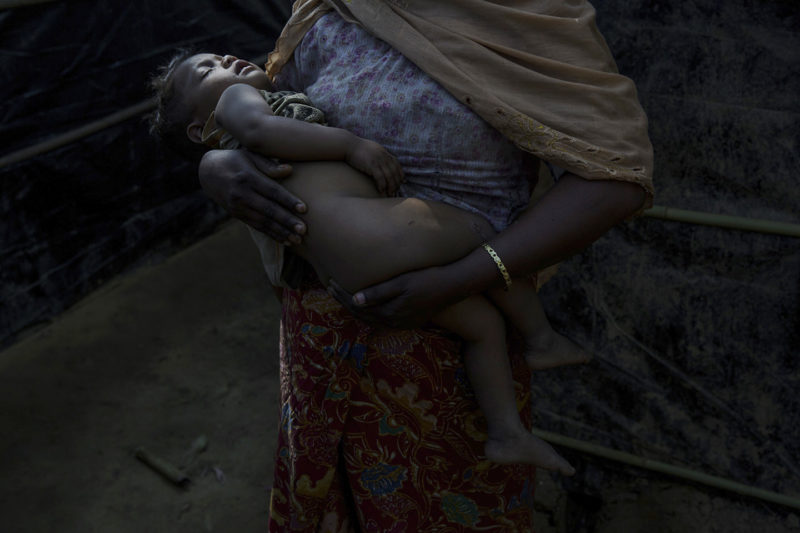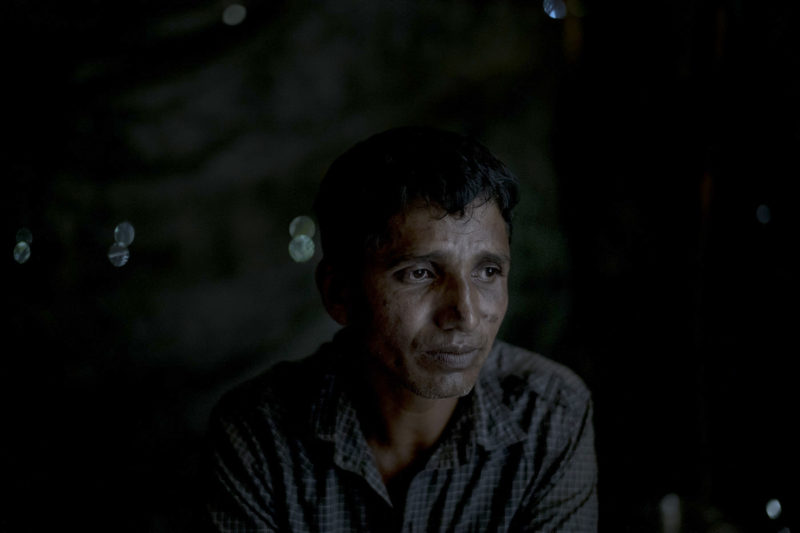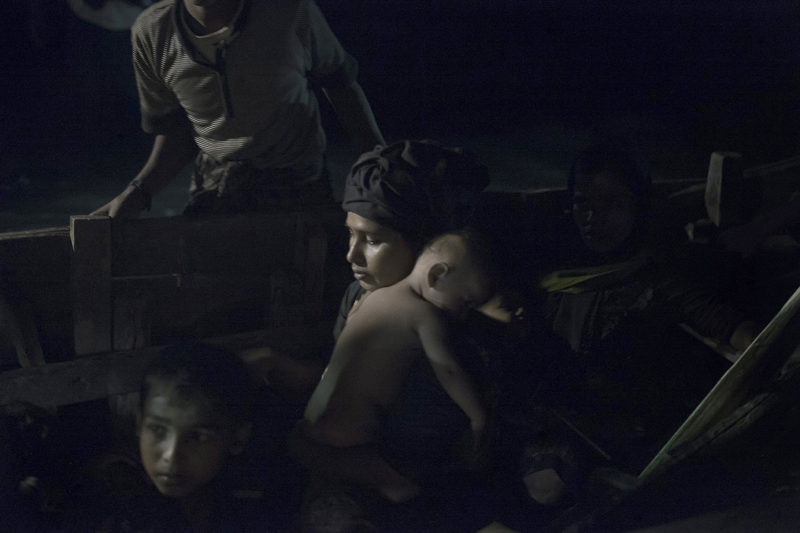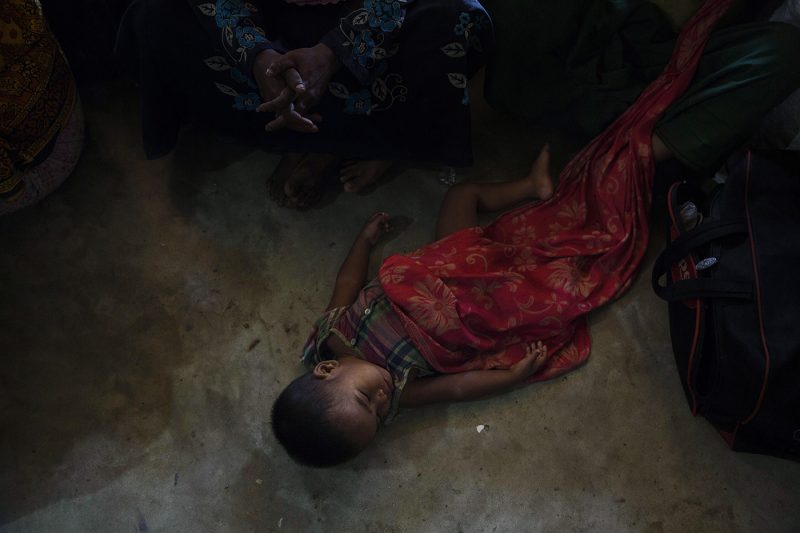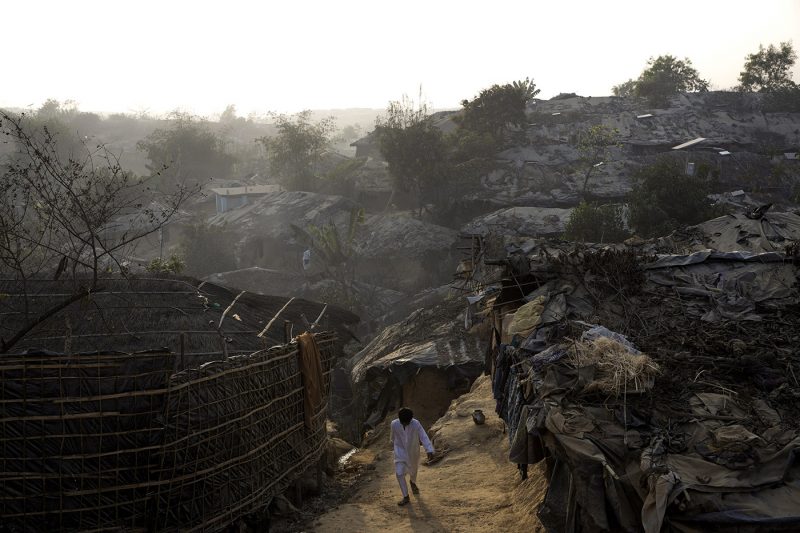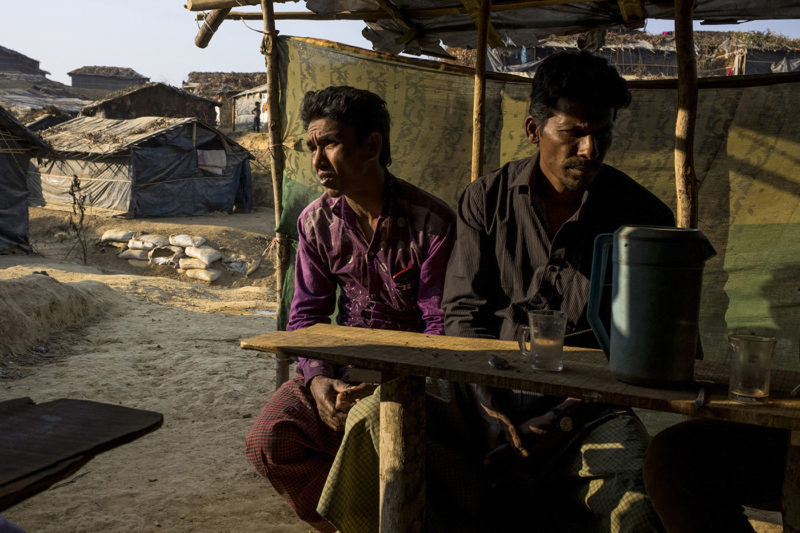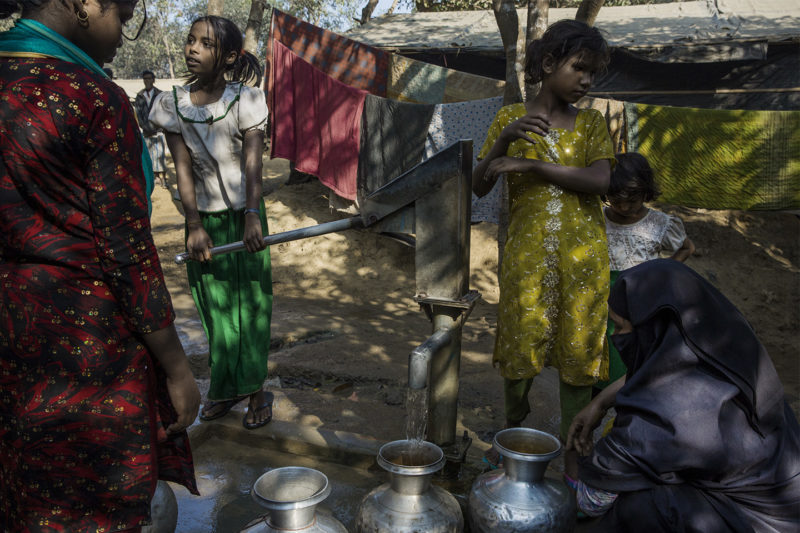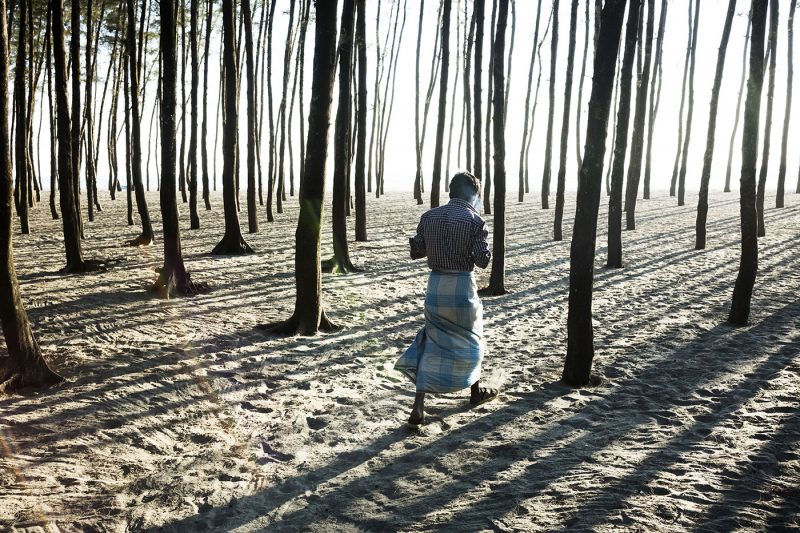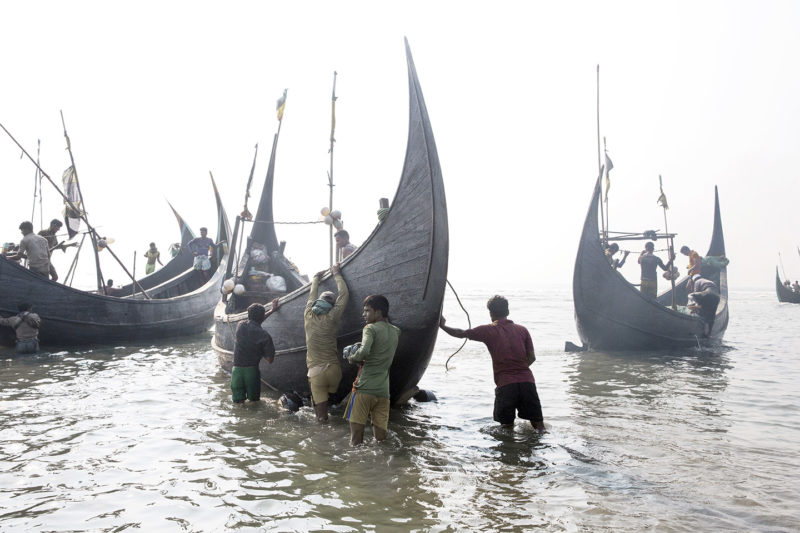EXODUS
The Rohingya crisis
Scroll down for pictures.
In 1824, the Bengalis were incorporated into the British army to expand the Indian Empire eastwards. During the Anglo-Burmese wars, the Bengalis fought and died for the Crown and when British-ruled India annexed Burma, the Bengalis were strongly encouraged to settle there, since they were viewed as being more suitable for working in the fields. After independence, these Bengalis were gradually considered as second-class citizens, accused of having collaborated with the colonial power. No one knows precisely when these “Bengalis” took on the name of “Rohingya”, a terms whose origin is still debated today, but the Burmese continue to call them “Bengalis”, to make it clear that they are foreigners and that they should be sent back home to Bangladesh. The Rohingyas are Sunni Muslims in a country that is 90% Buddhist and where religious nationalism is running riot.
In 1982, the military dictatorship of the day enacted a law that deprived the Rohingya people of their Burmese citizenship. They then became stateless and, since then, have been deprived of all citizens’ rights. They cannot work outside of their village. They cannot travel or even get married without the authorities' permission and they have insufficient access to health care and education.
The situation has tragically worsened since October 2016 as a clandestine Islamist group known as the Arkan Rohingya Salvation Army (ARSA) carried out several mortal attacks on the Burmese security forces. Their reaction was terrible: massacres, rape, and pillaged and burned villages. The Royingya people became the target of a systematic, total and definitive deportation campaign. Those who remained were executed or cooped up in camps. A “classic example of ethnic cleansing” recognized by the United Nations High Commissioner for Human Rights, Zeid Ra’ad Al Hussein, and probably the worse exodus these people have ever known. To date about 700 000 Rohingya refugees had crossed the border to Bangladesh and survive now in very bad sanitary conditions in camps. This was an unprecedented humanitarian catastrophe.

